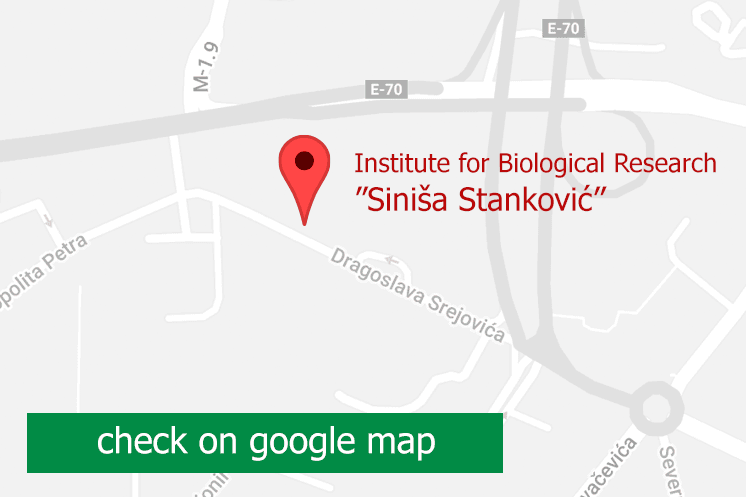
Dr. Milena Jović
Research Associate
Dr. Milena Jović
Milena Jović is a PhD student in the Molecular Biology and Physiology study program, in the Experimental neurobiology module at the Faculty of Biology, University of Belgrade. She completed her undergraduate studies at the Faculty of Biology, University of Belgrade, on the Molecular Biology and Physiology study program, on the Applied genetics module, while she completed her specialist studies at the Faculty of Biology, on the Immunology with microbiology module.
Milena is employed as a research assistant at the Institute for Biological Research "Siniša Stanković" (IBISS), National Institute of the Republic of Serbia, University of Belgrade, Department for Neurobiology, in the Laboratory for Molecular Neurobiology and Behavior. Her research focus encompasses the examination of the impact of bioactive compounds, such as fish oil and 18 alpha-glycyrrhetinic acid, on both behavioral and molecular alterations within the cerebral milieu of transgenic 5XFAD mice, serving as a pertinent model system for probing the intricacies of Alzheimer's disease pathology. Of particular intrigue is the broader investigation into the immunological facets, notably the involvement of glial cells, in the pathogenesis of neurodegeneration observed in the aging brain and in age-associated neurodegenerative disorders.
Milena completed training in Laboratory Animal Science at the Department of Comparative Physiology and Ecophysiology at the Faculty of Biology, University of Belgrade. She also attended a summer school IUBMB/FEBS Advanced Lecture Course, "Molecular Targets for antiaging interventions") in 2022, 2nd CellFit Training School: “Add a new dimension to cell culture” A practical full immersion course on 3D matrix in 2019, and 3rd Catania International Summer School of Neuroscience (CISSN 2018), Synaptic Function and Dysfunction: new Targets for Brain Diseases Pharmacology in 2018.
Milena is an active member of the Federation of European Neurosciences (FENS), the Serbian Neuroscience Society (SNS) and she is also technical support of SNS.











